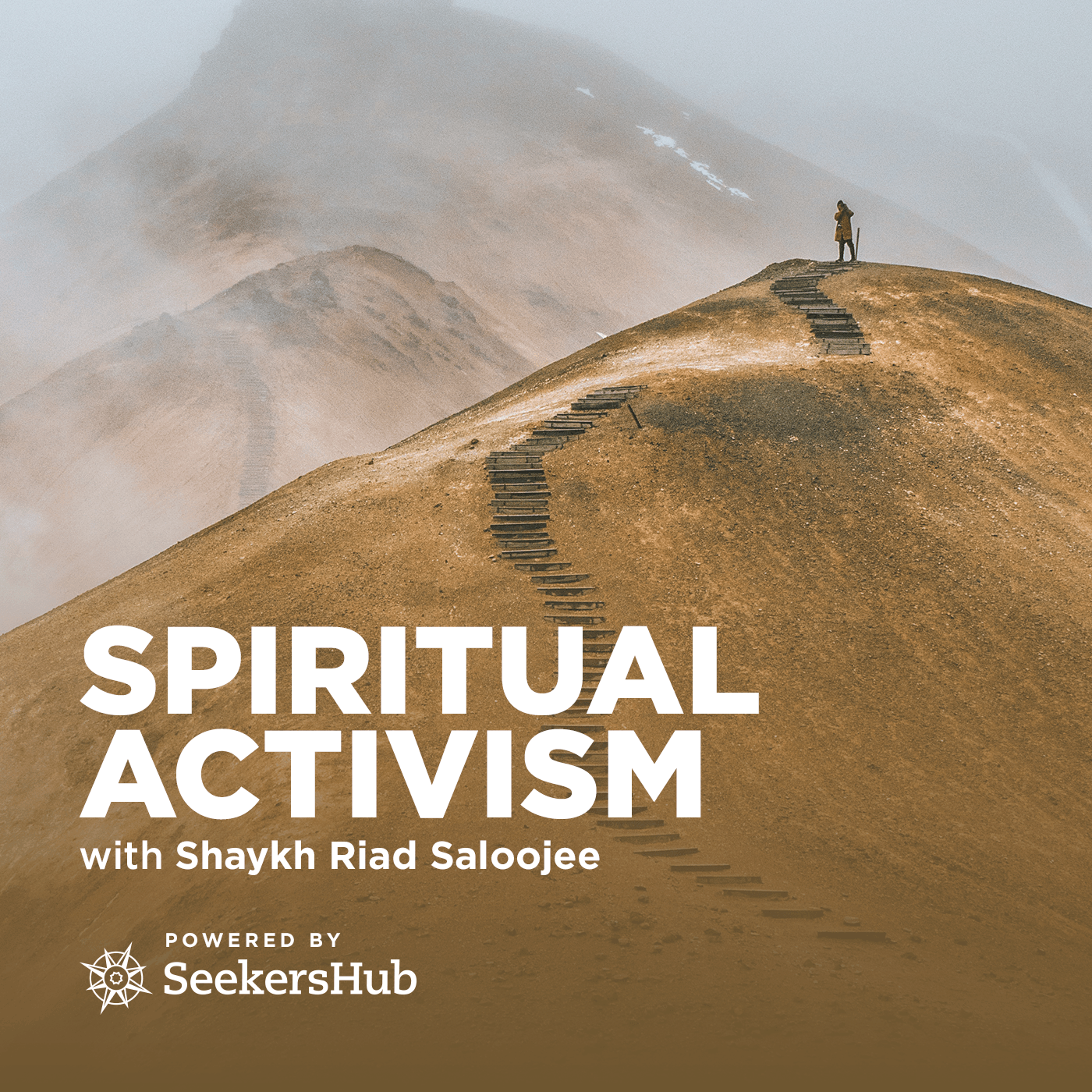01 – Uniting Mind, Body and Soul
: Play in a new window | Download to your device (9.9MB)
TOPIC ONE – UNDERSTANDING ACTIVE SPIRITUALITY
Islam provides a view of human reality that is cogent, holistic and practical, always sensitive to both constant and changing needs of the human experience.
It is from the remarkable and miraculous beauty of Islam that all elements of the human identity are fused together seamlessly: the spiritual heart, with its need for timeless truths and values; the intellect, with its need to conceive and chart a course for a life of freedom and happiness; the senses and limbs, with their energetic need to do, to affect, to change. Heartless spirituality, irrational belief, and hollow, mechanistic action have no place in Islam.
Allah says in the Qur’an: By the passage of time. Surely, mankind is in loss, except those who believe and work goodness, and counsel one another to truth, and counsel one another to patience (103:1-3).
Those who believe. Change begins with belief. The residence of belief is the spiritual heart (qalb). The heart is the locus of normative perception, experience and will. It is the fire of belief that sparks all movement and action.
Belief in the Divine Unicity of God (Tawhid), if it is truly experiential and not merely conceptual, provides the most powerful motor of internal normative and ethical change and gives birth to words and action. That ethical change reflects in character that is animated by Divine values and virtue.
And work goodness. The works of goodness that follow belief are the emotional and physical manifestations of the exigencies of Divine Unicity and its values of loving-mercy, justice, equity, kindness, moderation, love and generosity, first manifested within me, in my worship and my relationships. If I do not change, I cannot be an agent of meaningful change.
From me, that goodness must ripple outwards, touching my most intimate circles and then outwards still, to affect my environment – family, neighborhood and community; social, economic or political. I seek to impact my surroundings for the better for I am a piece of the social puzzle. I affect and am affected.
And counsel one another to truth, and counsel one another to patience. The quest for the collective good always brings challenges. Hence, I must counsel to truth with the means of truth; and I must counsel to patience with the means of patience.
This is faith in action. At every level, we cannot conceive of a spirituality that does not necessitate action. And we can never understand action as barren from spirituality. The relationship is integral. After all, our faith is a unity of the faith of Iman, the action of Islam and the spiritual excellence of Ihsan. Faith (Iman) leads inexorably to the practice of that faith (Islam), the aim of which is to achieve a heart that testifies to the Divine presence by the realization of Divine values as a permanent and stable feature of one’s character.
Activism aside, this is how we are all meant to live without any exception: in active spirituality, in spiritual activism.
There is no inherent disconnect or contradiction between Islamic Spirituality and social or political activism. In fact, Islamic spirituality is not only relevant but essential to all forms of activism. This podcast with Shaykh Riad Saloojee will present a paradigm for a spiritually-inspired activism where activism achieves what it was always meant to be: a vehicle for nearness to the Divine through genuine individual and social ethical change.
This series will comprise of seven discussions that will explore 1. The foundations of Islamic spirituality; 2. The spiritual ethos that is the basis of all activism; 3. The ailments of activism unhinged from spirituality; 4. The laws that govern activism; 5. The importance of “inner,” spiritual activism for beneficial “outer” activism; 6. Vignettes from Prophetic activism; and 7. An application of how spirituality must inform true environmental activism.
For more podcasts by SeekersGuidance, visit SeekersGuidance.org/podcasts.

